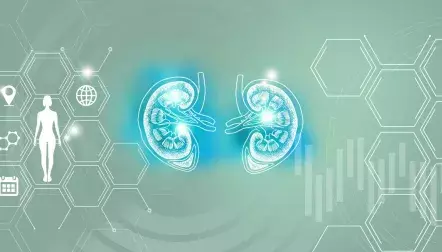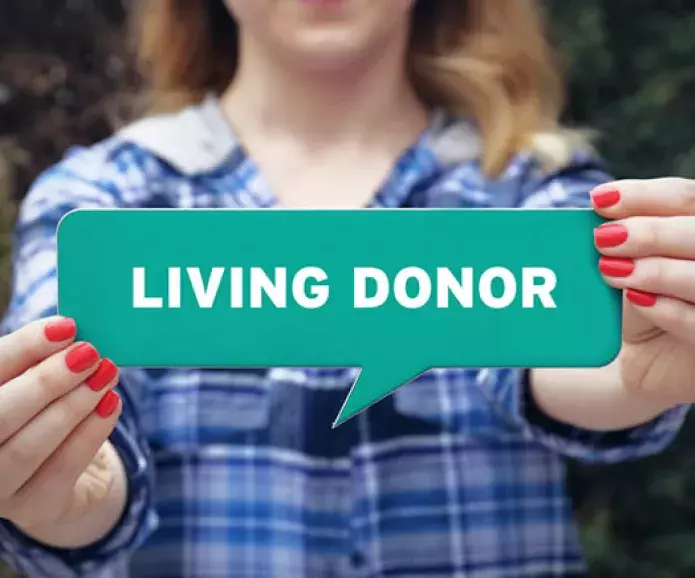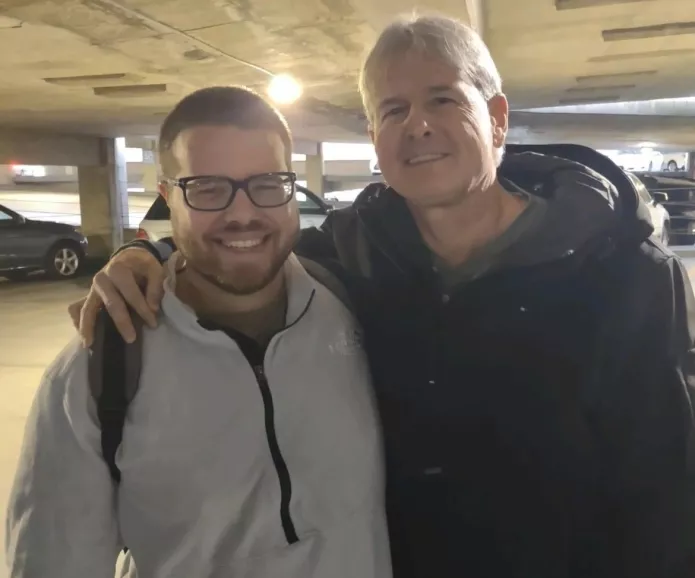
Organ and tissue donation
More than 100,000 people in the United States are waiting for a lifesaving organ transplant. Being an organ and tissue donor is an act of kindness that could save someone's life.


What is organ and tissue donation?
Organ donation is a surgery in which a healthy organ from one person (the donor) is put into the body of a person (the recipient) whose organ has failed. In organ donation, the donor may be living or deceased.
Tissue donation is when tissues such as skin or bone are taken from one person and put into the body of a person who needs it. In tissue donation the donor is usually deceased, but there are a few tissues you can donate while still alive such as blood or bone marrow.
Which organs and tissues can be donated?
Organs
- Kidneys
- Heart
- Lung
- Liver
- Pancreas
- Intestines
Tissues
- Corneas (the clear layer in front of your eye)
- Skin
- Tendons (tissue that connects muscle to bone)
- Arteries and veins
- Heart valves (tubes that keep blood flowing through your heart)
- Bones
Who can sign up to be an organ and tissue donor?
Nearly anyone can sign up to be an organ and tissue donor. People of all ages, genders, religious affiliations and races and ethnicities are organ and tissue donors. You can sign up to be an organ and tissue donor after you die, or you can donate organs and tissues while you are alive.
Organs you can donate while alive include:
- One of your kidneys: After donating, your remaining kidney will still work to remove waste from your body. Kidneys are the most commonly donated organs.
- Part of your liver: After donating, liver cells that are left will grow until your liver is almost back to its original size.
- Part of your lung, pancreas or intestines: Even though these organs do not regrow, you do not need the whole organ to continue living a full and healthy life.
Tissues you can donate while you are alive include:
- Skin after surgery, such as a tummy tuck
- Bone after knee and hip replacements
- Healthy cells from bone marrow and umbilical cord (the cord that connects a pregnant mother and baby) blood
- White and red blood cells and platelets (colorless blood cells that help your blood clot or stick together to stop bleeding)
You can donate blood or bone marrow more than once. The body replaces the blood and bone marrow after you donate.
Learn more about which organs and tissues can be donated.
Why should I sign up to be an organ and tissue donor?
By donating organs and tissues after you die, you can save up to eight lives and improve as many as 75. The need for donated tissues and organs in the U.S. is great.
- 0
More than 100,000 people are waiting for a lifesaving organ transplant.
- 0
Every 10 minutes, someone who needs a transplant is added to the transplant waitlist.
- 0
More than 20 people die every day because the organ they needed was not available in time.

A Gift That Saves Lives
Chris became a living donor for his friend Paul—giving him the gift of life through a kidney transplant. Their story is a powerful reminder of what’s possible when compassion meets courage. Donate any amount today to help more families find a lifeline through organ and tissue donation.

A need for donors of color
More than half of all people on the transplant waiting list in the U.S. are people of color, yet only about 30% of organ donors are people of color. This includes people who identify as African American, Asian American, Pacific Islander, Native American and Hispanic.
Organs are not matched by race or ethnicity, but people needing an organ transplant will have a better chance of getting one if there are more donors from their racial or ethnic backgrounds. This is because people of the same race or ethnicity are more likely to have compatible blood types and tissue markers. So, the more diverse the donors are, the more people who need a transplant can get one.
How can I sign up to be an organ and tissue donor?
Signing up as an organ donor is easy! There are four ways to sign up:
- Sign up via the National Donate Life Registry.
- Sign up online in your state. You may need your driver's license/ID number to fill out a form.
- Visit your state or local motor vehicle office (DMV).
- If you have an iPhone, sign up through the Health app on your phone. Once you sign up, your information is sent to a national computer system.
What should I do after I sign up?
Share your decision with your family
Talk to your family about your decision. Make sure they are aware and will not be surprised if asked to help carry out your wishes.
Spread the word
Share your decision with your friends and your community. This may encourage others to sign up as well. You can also get involved by joining donation awareness efforts, such as volunteering for local nonprofits that help educate the public on organ donation. These national organ donation organizations have volunteer programs:
- United Network for Organ Sharing (UNOS)
- Donate Life America
- American Transplant Foundation
Update your donor information
Make sure your information is up to date if you move. Your state donor registry allows you to sign up and change your information. Most states will allow you to choose which organs and tissues you want to donate, which you can also change.
Myths and facts about organ donation
Myths about organ donation may make people unsure about signing up to be an organ donor. Here are some common myths, along with the facts that clear them up.
Myth: If I'm in an accident and the doctors know I am a donor, they will not work as hard to save me.
Fact: Hospital staff take an oath to do everything they can to save your life whether you are an organ donor or not. If an organ donor is on a ventilator (a machine that helps your lungs work), doctors will consider donating their organs once they have confirmed brain death (there is no activity in their brain and there is no chance they could be revived).
Myth: I am too old or too young to be a donor.
Fact: There is no age limit for donating your organs and tissues. As a living or deceased donor, doctors will make the decision to use your organs and tissues based on medical information, such as the health of your organs. Doctors look at each possible donor on a case-by-case basis.
Many children are also in need of an organ transplant and usually need organs that are smaller than an adult organ. Some states allow people ages 15–17 to sign up to be an organ donor. If you are under 18 and would like to register to become a deceased organ donor, talk to your family and ask for their agreement. The final decision to donate organs will be up to the parents or legal guardian of a minor
Myth: My health would prevent me from being a donor.
Fact: Very few medical conditions would make you unable to sign up to be an organ and tissue donor. These may include some kinds of cancer or a severe infection.
For organ donation after death, even if the donor lived with a chronic condition or other illness, doctors will do an exam to figure out which organs are healthy enough to donate. Doctors look at each possible donor on a case-by-case basis at the time donation would happen.
Myth: I would only be a match to someone I am related to.
Fact: It may be possible for you to donate to a sick loved one while you are still alive, such as donating your kidney. However, after death any organs that are healthy enough to donate will be used. It is likely that all of them would go to people you do not know.

Myth: Organ and tissue donation is against my religion.
Fact: Major religions including Islam, most branches of Judaism, Catholicism and most Protestant faiths support organ donation as an individual right. Most also encourage organ donation as an act of kindness or generosity.
Talk to your faith leader for more information.
Myth: You cannot have an open casket funeral if you have donated your organs.
Fact: Open casket funerals can take place with no visible signs of organ donation. Throughout the transplant process, the body is treated with great care and respect.
Myth: My family would have to pay if I donate my organs.
Fact: The deceased organ donor's family is never charged for the donation process. Any costs related to the donation process, such as organ removal and the transplant, will be sent to the person who receives the organ. These costs are usually covered by the recipient's insurance.
Anyone thinking about organ donation should talk with their hospital about financial and insurance concerns before the transplant process. The hospital will have a team who can share information about transplant options, along with what expenses will be paid by the recipient's insurance or the hospital.
Learn more about becoming an organ donor
Make More Organ and Tissue Donations Possible
Every day, people across the country are waiting for a lifesaving organ transplant. Your gift to the American Kidney Fund helps shorten that wait by supporting living donors, funding patient assistance and powering advocacy to increase access to transplant. Help us continue to make 133 kidney transplants possible every month by donating any amount today.

